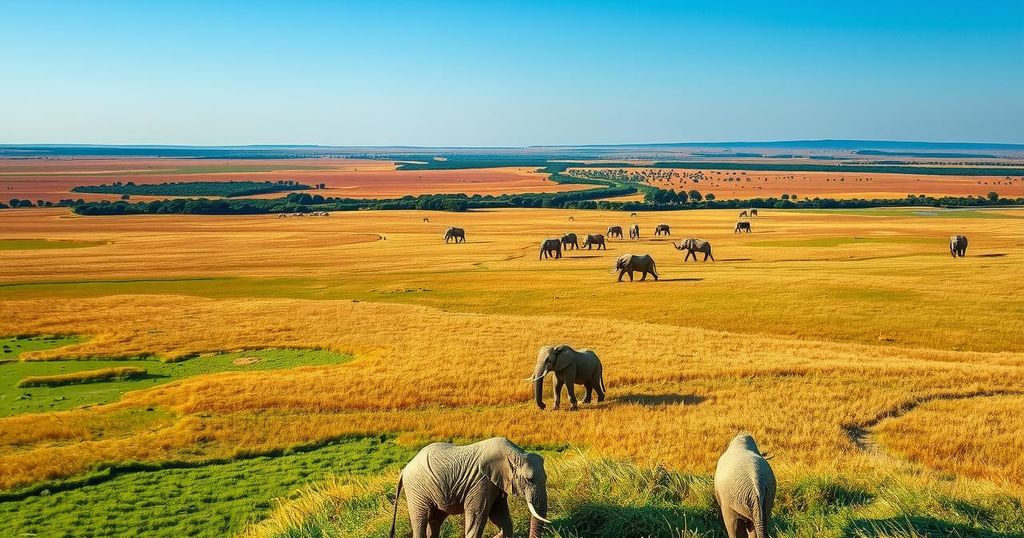Botswana’s hunting revenues have reached $4 million since the ban lift in 2019, largely from elephant licenses. Despite local economic benefits, growing opposition from countries like the U.K. could threaten this income, leading to concerns about community impacts and wildlife management effectiveness.
Botswana has generated $4 million from hunting license sales, marking the highest revenue since the nation lifted its hunting ban in 2019. This season concluded in November and occurred despite rising opposition from several European countries advocating for a ban on the importation of African wildlife trophies. Annually, Botswana issues about 400 licenses for elephant hunting, primarily purchased by international hunters.
Minister of Environment and Tourism Wynter Mmolotsi reported to Parliament that revenues from the sale of elephant licenses have significantly benefited communities in wildlife regions. He emphasized that the nation employs both consumptive and nonconsumptive methods to optimize economic gains, particularly for local populations. For the forthcoming 2024 hunting season, community quotas are expected to generate 42,863,423 pulas, with an additional 15,633,950 pulas from special elephant quotas designated for conservation and community initiatives.
Despite this increased revenue, Western nations exhibit escalating opposition towards hunting practices. Notably, Canada and Belgium have prohibited the importation of wildlife trophies. Mmolotsi expressed concern regarding the backlash from animal rights organizations against Botswana’s sustainable wildlife management approach, which utilizes hunting as a means of community empowerment. The ministry is actively engaging with both the hunting industry and community trusts to address this rising dissent, especially in the U.K. and Germany.
Siyoka Simasiku, a director at the conservation coalition Ngamiland Council of Non-Governmental Organisations, has been vocal in articulating that U.K. restrictions could severely impact local communities reliant on these hunting markets. With the U.K. being an influential economic entity, the potential ripple effect of such bans could deter hunters from visiting Botswana, adversely affecting community benefits tied to hunting.
Conversely, Oaitse Nawa from the Elephant Protection Society advocates for a cessation of hunting, questioning the actual benefits from the revenues purportedly generated. He calls for rigorous research to assess the socio-economic impacts of hunting on local populations, citing that the safety risks and behavioral changes in wildlife post-hunting could lead to detrimental effects on communities.
Botswana is home to the largest elephant population globally, exceeding 130,000 elephants, yet the country grapples with challenges such as increased human fatalities and agricultural damage as a result of human-elephant interactions.
In conclusion, Botswana’s hunting industry has seen significant revenue growth since the reversal of the hunting ban, generating substantial income for local communities. However, growing international opposition, particularly from the U.K. and other European nations, poses a threat to this economic model. Stakeholders are divided on the efficacy of hunting as a revenue source for conservation and community development, highlighting the need for thorough studies on its impacts. Ultimately, the future of Botswana’s wildlife management strategy remains uncertain amid external pressures and local challenges.
Original Source: www.voanews.com






